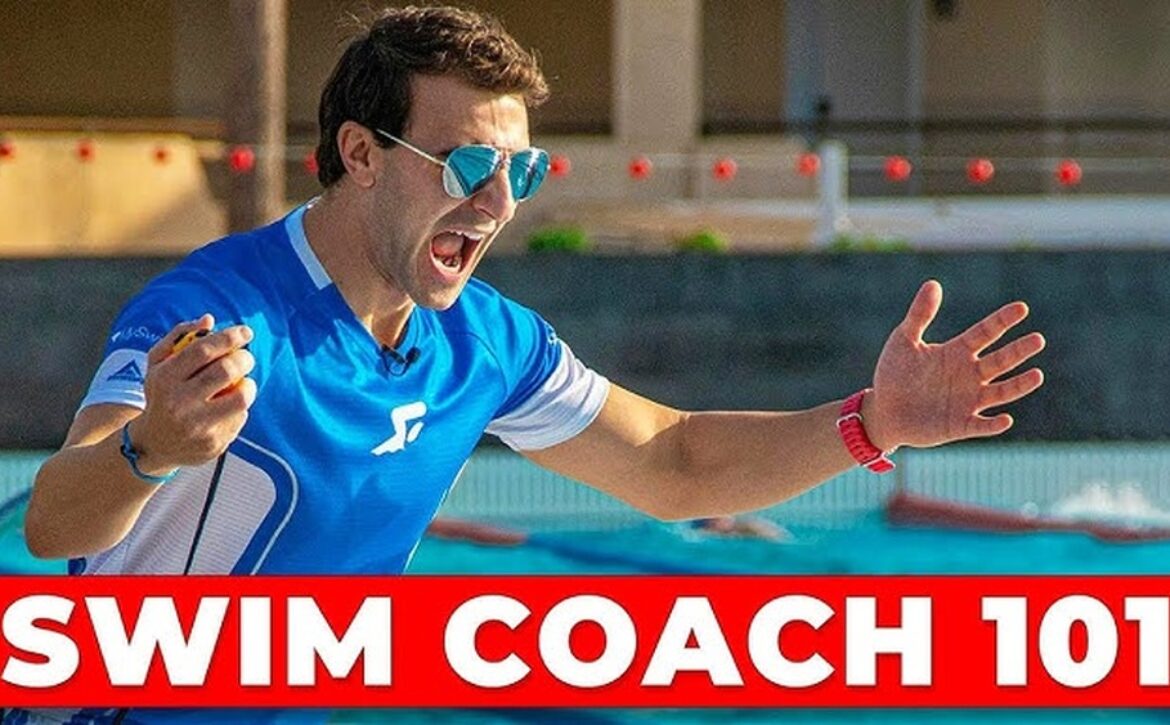
How to Become a Diploma in Sports Nutrition: A Step-by-Step Guide
Are you passionate about sports and nutrition? Do you dream of combining these interests into a fulfilling career?
Becoming a diploma holder in sports nutrition could be your next big step. Imagine guiding athletes to peak performance while ensuring they maintain optimal health. This isn’t just about understanding what to eat—it’s about mastering the science behind nutrition and its impact on athletic prowess.
As you dive into this article, you’ll discover the essential steps to turn your passion into a professional reality. Get ready to unlock a career that not only excites you but also empowers others to achieve their best. Let’s explore how you can make this dream a tangible career path.
Understanding Sports Nutrition
Gaining a diploma in sports nutrition enhances understanding of athlete dietary needs and performance. Learn essential nutrition principles, meal planning, and dietary supplements. This qualification opens doors to careers in sports health and wellness.
Understanding sports nutrition is a crucial step for anyone aspiring to specialize in this field. It involves comprehending how food and drink affect athletic performance and recovery. This understanding can empower you to guide athletes towards optimal health and peak performance.
Role Of Nutrition In Sports
Nutrition plays a pivotal role in sports by fueling athletes’ bodies for training and competitions. It affects energy levels, muscle repair, and overall endurance. Imagine an athlete preparing for a marathon—without the right nutrition, their performance can significantly falter. Proper nutrition helps in maintaining a healthy weight, improving concentration, and reducing the risk of injury. It also enhances recovery time, allowing athletes to train harder and more frequently. As a sports nutritionist, your role will involve crafting personalized nutrition plans to meet these diverse needs.
Benefits Of Specialized Knowledge
Specialized knowledge in sports nutrition offers a competitive edge in a growing industry. With a diploma, you can confidently advise athletes, sports teams, or even fitness enthusiasts. This expertise is not just about knowing what foods are healthy but understanding how they interact with physical exertion. For instance, you might know that protein is vital for muscle repair, but how much does an athlete need post-training? With specialized knowledge, you can answer such questions with precision, offering tailored advice that can significantly enhance an athlete’s performance. Consider how empowered you’ll feel being the go-to expert for athletes seeking to improve their game. You can make a real difference in their careers by optimizing their nutrition. Are you ready to take that step and become an expert in sports nutrition?
Essential Skills And Traits
Becoming a diploma holder in sports nutrition requires certain skills and traits. These attributes help you succeed in this dynamic field. Understanding these skills can guide you on your journey.
Communication Skills
Communication is crucial in sports nutrition. You must explain complex nutrition concepts simply. Your clients need clear advice to improve their health. Good listening skills also matter. They help you understand clients’ needs and goals. This ensures effective guidance and advice.
Analytical Thinking
Analytical thinking helps assess clients’ needs. You will evaluate dietary patterns and health data. This skill aids in creating tailored nutrition plans. Problem-solving is key, too. It helps you address unexpected challenges. With analytical skills, you make informed decisions.
Passion For Sports And Fitness
A strong passion for sports and fitness drives success. It helps you stay motivated and committed. This passion also connects you with clients. They feel your enthusiasm and trust your guidance. A genuine interest in sports enhances your expertise. It keeps you updated on latest trends and research.
Educational Pathways
Embarking on a career in sports nutrition requires a solid educational foundation. Understanding the pathways available can help guide aspiring professionals towards achieving their diploma. Various educational steps lead to a diploma in sports nutrition. Each path offers unique opportunities for growth and learning.
Relevant High School Subjects
High school subjects form the basis of sports nutrition education. Biology is essential for understanding bodily functions. Chemistry helps in grasping nutrient interactions. Physical education fosters knowledge about fitness and health. Math is useful for calculating nutritional needs. Focus on these subjects for a strong foundation.
Choosing The Right Diploma Program
Selecting a diploma program is crucial for career success. Research institutions offering sports nutrition diplomas. Check their curriculum for comprehensive coverage. Look for programs with hands-on training. Consider faculty expertise and industry connections. Review alumni success stories for program effectiveness.
Selecting Accredited Programs
Embarking on a journey to become a diploma holder in sports nutrition is exciting and rewarding. One crucial step in this journey is selecting an accredited program. Accreditation ensures that you are receiving quality education that meets industry standards. With numerous programs available, how do you choose the right one? Let’s explore the importance of accreditation and discover some top institutions offering these programs.
Importance Of Accreditation
Accreditation acts as a seal of approval, verifying that a program adheres to educational standards set by a governing body. By choosing an accredited program, you ensure that your diploma will be recognized and respected in the sports nutrition field.
Think of accreditation as a safety net; it protects you from investing time and money in substandard education. Wouldn’t you want your qualifications to be trusted by employers and clients alike?
Moreover, accredited programs often have access to better resources, experienced faculty, and networking opportunities. This can significantly enhance your learning experience and career prospects.
Top Institutions Offering Programs
Several reputable institutions offer accredited diplomas in sports nutrition. It’s essential to research and find a program that fits your goals and learning style.
- American College of Sports Medicine (ACSM): Known for its comprehensive curriculum, ACSM offers programs that blend theory and practical application.
- International Sports Sciences Association (ISSA): ISSA provides flexible online courses that cater to busy schedules, making it ideal for working professionals.
- National Academy of Sports Medicine (NASM): NASM’s programs are renowned for their focus on evidence-based practices, ensuring you learn the latest in sports nutrition.
Each institution has its unique strengths, so consider what aligns best with your career aspirations. Do you prefer hands-on learning or online flexibility? Your choice will shape your educational journey.
Remember, selecting the right program is a pivotal step in your sports nutrition career. Make an informed decision that will pave the way for success and fulfillment in this dynamic field.
Course Curriculum Insights
Embarking on a journey to become a diploma holder in sports nutrition is an exciting endeavor filled with dynamic learning experiences. Understanding the course curriculum can greatly influence your decision and prepare you for the rewarding challenges ahead. Let’s delve into the core subjects and see how practical and theoretical learning intertwine to shape your expertise in this field.
Core Subjects Covered
The curriculum often includes a range of subjects that are essential to mastering sports nutrition. Expect to dive into topics like:
- Macronutrients:Learn about proteins, fats, and carbohydrates, and their role in athletic performance.
- Micronutrients:Explore vitamins and minerals crucial for recovery and endurance.
- Hydration:Understand the importance of fluid balance in maintaining peak performance.
These subjects are designed to provide a solid foundation. You’ll gain insights into how nutrition affects not just physical abilities but also mental health and recovery. Consider how each topic applies to real-world scenarios you might encounter.
Practical Vs Theoretical Learning
Balancing practical and theoretical learning is key in sports nutrition courses. You’ll find yourself immersed in hands-on experiences, such as:
- Creating personalized nutrition plans for athletes.
- Analyzing dietary intake and performance metrics.
Theoretical classes, on the other hand, will equip you with scientific knowledge and critical thinking skills. Imagine discussing the biochemical pathways of nutrients and their physiological impacts. Both approaches aim to prepare you for real-life challenges in sports nutrition.
Ask yourself: How can you apply these learnings to improve athletic performance? The practical knowledge you gain will allow you to make informed decisions that can transform someone’s sports journey.
Certification And Licensing
Embarking on the journey to become a diploma holder in sports nutrition is an exciting venture filled with opportunities to make a difference in athletes’ lives. But before you can provide professional advice, certification and licensing are crucial steps. They not only establish your credibility but also ensure you adhere to industry standards. So, how do you get certified and licensed?
National And International Certifications
Choosing the right certification is essential for your career in sports nutrition. National certifications are often recognized within your country and can provide you with the foundational knowledge you need. Consider options like the American Council on Exercise (ACE) or the National Academy of Sports Medicine (NASM) if you’re in the US.
If you’re aiming for a global audience, international certifications might be your path. The International Society of Sports Nutrition (ISSN) offers widely respected credentials that can open doors worldwide. Their programs cover comprehensive topics that prepare you for various challenges in sports nutrition.
Ask yourself: Do you want to work locally, or are you aiming for international recognition? Your choice will guide your certification path. It’s a decision that affects your career trajectory, so weigh your options carefully.
Maintaining Professional Credentials
Once you’ve earned your certification, maintaining your credentials is vital. This often involves continuing education and staying updated with the latest industry trends. Organizations like ISSN require periodic renewals that keep you informed and relevant.
Engage with professional communities and attend workshops to enhance your knowledge. This not only helps maintain your certification but also expands your network. Meeting peers and experts can provide insights you might not find in textbooks.
Consider this: Are you prepared to dedicate time to ongoing learning? Keeping your credentials up-to-date is a commitment that pays off in expertise and credibility. Regularly revisiting your skills ensures you remain a trusted advisor in sports nutrition.
Career Opportunities
Choosing a career in sports nutrition opens doors to various exciting opportunities. With a diploma in this field, you can work in different settings and help athletes achieve their best performance. Let’s explore some career paths available for sports nutritionists.
Working With Sports Teams
Sports teams often hire nutritionists to guide athletes on proper dietary plans. These professionals ensure players eat right for peak performance. You might join a professional team or work with college-level athletes. Your role will include meal planning, supplement advice, and hydration strategies. The goal? Enhance athletic performance and recovery.
Private Practice Options
Starting a private practice allows you to consult with individual athletes. You can tailor nutritional plans to meet each client’s specific needs. This flexibility can lead to a diverse clientele, from amateur athletes to fitness enthusiasts. Private practice offers the chance to work one-on-one, providing personalized advice and support. It’s ideal for those who enjoy building strong client relationships.
Research And Development Roles
Research roles focus on studying the effects of nutrition on sports performance. Working in development, you can create new dietary supplements or food products. These roles often exist in academic settings or with sports nutrition companies. You’ll contribute to scientific advancements and help develop better nutritional strategies. It’s a career path for those passionate about evidence-based practices.
Networking And Professional Development
Achieving a Diploma in Sports Nutrition involves understanding nutrition principles tailored for athletes. Learning through courses and workshops expands knowledge in diet planning, performance enhancement, and recovery. Networking with industry professionals boosts skills and opens opportunities in sports nutrition careers.
Networking and professional development are key to advancing your career in sports nutrition. Beyond earning your diploma, building relationships and expanding your knowledge can set you apart. Engaging with the right people and staying informed about the latest trends will enhance your expertise and open doors to new opportunities.
Joining Professional Organizations
Consider joining professional organizations dedicated to sports nutrition. These groups often provide resources, support, and valuable connections. Membership can keep you updated on industry standards and offer platforms to share your own insights. Being part of an organization can also lead to mentorship opportunities. Mentors can provide guidance and share their experiences, helping you navigate your career path. Think of it as having a trusted advisor who wants to see you succeed.
Attending Workshops And Conferences
Workshops and conferences are great venues for learning and networking. They offer sessions led by industry experts who share cutting-edge research and practical advice. Attending these events can help you stay ahead in a constantly evolving field. Meeting like-minded professionals at these gatherings can lead to collaborations and job opportunities. Even a casual conversation over coffee can lead to your next big career move. Are you ready to take the leap and connect with others in your field? Keep your eyes open for both local and international events. Traveling might seem daunting, but it can be an investment in your future. You never know who you might meet or what you might learn that could change your career trajectory.
Overcoming Challenges
Embarking on the journey to earn a Diploma in Sports Nutrition is exciting, yet it comes with its own set of challenges. From balancing practical experience with academic demands to keeping pace with ever-evolving industry trends, it requires resilience and adaptability. But overcoming these hurdles can lead to profound personal growth and professional expertise.
Balancing Practical Experience And Studies
Striking a balance between hands-on experience and academic studies is crucial. You might find yourself in a dilemma: should you spend more time in the classroom or gain practical exposure?
Consider the story of a sports nutrition student who spent weekends volunteering at a local gym, applying classroom knowledge in real-world settings. This approach not only enriched her learning but also led to valuable network connections.
Think about how you can integrate practical experience into your learning. Volunteer, intern, or work part-time in relevant settings. This will deepen your understanding and enhance your resume.
Staying Updated With Industry Trends
The world of sports nutrition evolves rapidly. New research, dietary guidelines, and fitness fads can change the landscape swiftly.
Ask yourself: how can you ensure you’re always in the loop? Consider subscribing to industry journals, attending workshops, or joining professional groups.
One sports nutritionist shared how following experts on social media kept her informed about the latest trends. She used this knowledge to offer cutting-edge advice to her clients.
Think about leveraging digital platforms to stay informed. Being current not only boosts your credibility but also ensures you offer the best advice to athletes.
Reflect on these challenges as opportunities for growth. How will you tackle them to become a proficient sports nutritionist? Your proactive efforts will lay a strong foundation for your future success in the field.
Frequently Asked Questions
What Is Sports Nutrition Diploma?
A sports nutrition diploma is a specialized program focusing on nutrition strategies for athletes. It covers topics like energy balance, dietary supplements, and performance-enhancing diets. Graduates learn to optimize athletic performance through proper nutrition and diet planning, offering valuable skills for careers in sports health and fitness industries.
How Long Does Diploma Take To Complete?
Typically, a diploma in sports nutrition takes one to two years to complete. The duration may vary based on the institution and the specific curriculum. Some programs offer part-time or online options, allowing flexibility for working professionals or students with other commitments.
What Are Career Options After Diploma?
Graduates can pursue careers as sports nutritionists, fitness consultants, or health coaches. Opportunities exist in gyms, sports teams, and wellness centers. Some may work as private consultants. The diploma enhances the ability to guide athletes in nutritional strategies for peak performance and recovery.
What Are Key Skills Learned In Diploma?
The diploma teaches skills like meal planning, dietary analysis, and understanding nutritional needs of athletes. Students learn about macronutrients, hydration strategies, and supplements. These skills help in creating effective nutrition plans for enhancing athletic performance and ensuring optimal recovery.
Conclusion
Becoming a diploma holder in sports nutrition is a rewarding journey. This field combines passion for sports and interest in nutrition. Start with research and choose a reputable course. Study hard and stay updated with current trends. Practical experience is crucial, so seek internships or volunteer opportunities.
Networking with professionals can open new doors. Stay committed and patient as you build your career. Your efforts can lead to a fulfilling role helping athletes achieve their best. Embrace the challenges and enjoy the growth. Your dedication will make a positive impact in the sports world.





